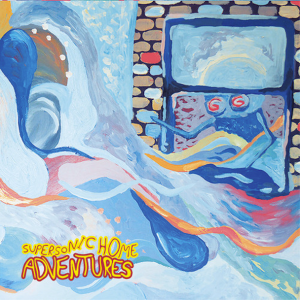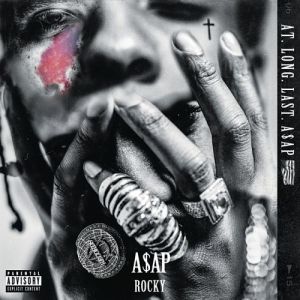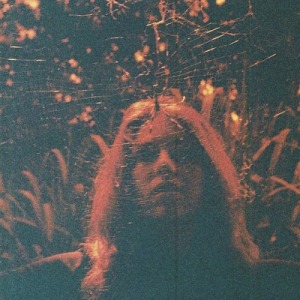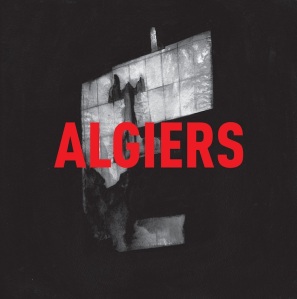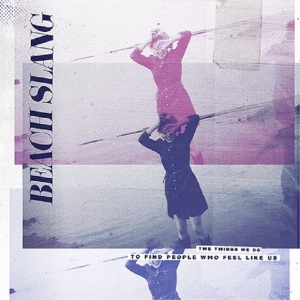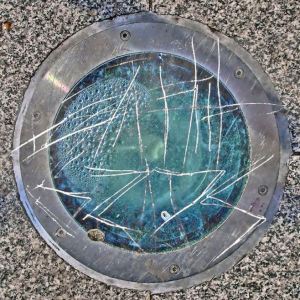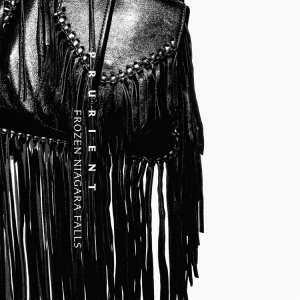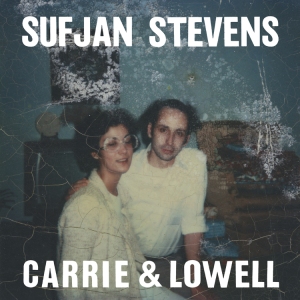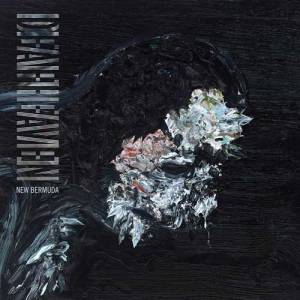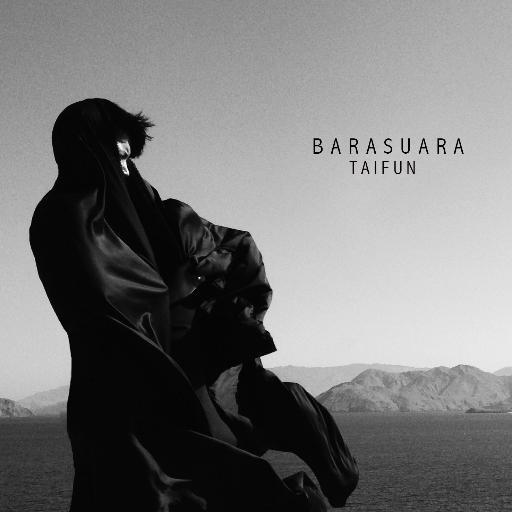
I’m the only one to blame, but years of listening to and being enamored by music from another countries have made me hold music from my own country in a lower regard. So much so that if someone were to come up to me and say they had been listening to a local band that was just as good as one of my favorite international bands, I would skip straight to the part of the conversation where I try to introduce a different topic. This musical racism that I’ve found myself unwittingly practicing has taught me a thing or two about the power of an idea and how difficult it is to be open-minded about something once you’re convinced that you’ll never need it in your life, which was exactly what I thought of Barasuara when a friend introduced me to them last June.
Barasuara is a Jakarta-based sextet formed in 2011 and comprised of two guitarists, one of whom is also the lead singer, a bassist, a drummer, and two female back-up vocalists. A pretty standard, contemporary rock-oriented formation you’ve come to expect from any local “indie” band. What set Barasuara apart, though, according to my friend, are their live performances which have been described as energetic, emotional, and technically proficient–adjectives that don’t mean shit if the music isn’t up to par. Unfortunately, when he showed me some pro footage of Barasuara playing live, their music didn’t leave a positive impression on me. All I got from it was “6 talented musicians playing some otherwise pretentious and boring look-at-us-our-music-is-different-from-anything-else-you’ve-listened-to-all-year-xD alternative rock very tightly”. I wasn’t even interested in looking up the lyrics.
Around 4 months later, Barasuara was building up to the release of their debut album Taifun with the highly-anticipated and aptly-titled concert event, Konser Taifun, which has since been receiving enormous praise from various corners of the Indonesian music industry. Every music journalist seemed to be equally intent on making Barasuara sound like this huge-ass monumental music thing whose wagon you’d better climb aboard as soon as possible lest you’d miss out on…some other huge-ass monumental music thing? It’s difficult to pinpoint what these journalists are trying to say when they’re writing in hyperbole. Meanwhile, the so-called “opinion leaders” on social media were also engaged in a similar activity, influencing their followers (both literal and figurative) to embrace the Barasuara hype by recounting their experiences at Konser Taifun in vivid detail. Minds were blown, eargasms were had, intense euphoria was felt, and tears were flowing. Being the ever-skeptic and insensitive guy that I am, I immediately recognized a layer of unintentional comedy in these stories and refused to acknowledge any merit they might or might not have had. Looking back, I think that was pretty douchey of me, but keep in mind that at this point my opinion on Barasuara hadn’t changed at all.
When I went to Jakarta a month later to be interviewed about an online music-sharing account on ask.fm I and 5 other friends whom I met through the platform had started, I hadn’t thought of Barasuara in a while but the hype was still very much alive. Before the interview, I conversed with one of those 5 friends about music and the recent goings-on in the local “scene”, so naturally Barasuara entered the conversation. As it turns out, he was also not feeling the hype as much as everyone else and thought it was blown way out of proportion. Knowing this, I felt comfortable telling him about how hilariously over-the-top the aforementioned stories were to me and we had a good laugh over it. But soon after, it occurred to me for the first time that maybe it wouldn’t have hurt to give Barasuara’s music a second chance and not dismiss it right away because of my unfounded preconceptions about local music, that maybe people were not making this stuff up.
The interview went smoothly and I had a great time hanging out with my new friends, even though I had to leave early to get some rest before returning to Bandung the next day. On the ride home that night, mesmerized by the all-too-familiar-yet-alluring Jakarta nighttime traffic and listening to Tim Hecker’s Virgins, I decided that the next time Barasuara’s music presented itself to me, my ears would be opened.
My third semester came to a close in mid-December and the plans I’d made for the month ahead didn’t include Bandung, so I wasted no time in getting back to Depok and linking up with my best friends to figure out how to spend the holiday to our best collective interest. I’d love to tell you all about it, but I’m afraid that that would be a tangent. So I’ll skip to the night of January 1st, 2016, or in other words, the most crucial part of this entire piece and the one that compelled me to write it in the first place.
I was out mall-hopping with a couple of friends and after having done every clichéd mall-related activity you can think of, we ended up at a hipster-friendly bookshop / record store in a mall in the Cilandak area. I was pleasantly surprised to find out that they had started selling vinyl and despite their relatively limited collection, I wouldn’t hesitate to return at a later date with a proper budget, either for the Slowdive EP (which I think is pretty rare) or Swervedriver’s Juggernaut Rides. In any case, all the money I had left that night was only enough for a CD, so I turned to their CD collection and a copy of Taifun immediately caught my eye, prompting me to take a quick look at the records surrounding it. It wasn’t long before I realized that they were all local releases and one in particular stood out, Efek Rumah Kaca’s self-titled debut. I’d wanted to experience that album in its entirety since I fell in love with the song “Sebelah Mata” at first listen earlier last year, so now I had another record to consider picking out. As I was weighing my options, my friend suggested that I get the Efek Rumah Kaca album while he get Taifun to be played in the car on our way back and if I ended up liking it more than the former, we would swap our purchases. Unable to come up with a better solution, I took his suggestion and we left the place as soon as we’d made our purchases.
It was around 10 PM when we exited the mall’s basement parking space and drove out onto the road that led to Cinere. We were lucky that the traffic had grown pleasantly sparse so we could concentrate on Taifun better. To be honest, I expected to be blown away right off the bat and have my skepticism crushed within the first two minutes of the album. But by the end of “Bahas Bahasa”, Barasuara still sounded like a group of skilled musicians being skilled musicians and nothing more. The passion was definitely there, but the compositions felt too rigid and lifeless to me. It’s almost like they based their entire songwriting around a book on how to make your music sound fresh and exciting with a few compositional tropes that would be recycled over and over again to give off the desired impression; ‘Poetic lyrics sung over intricate drum beat and tension-building guitar riff’, ‘Jarring drum solo intro followed by sudden transition to catchy chorus’, ‘Anthemic gang vocals peppered throughout the track’, you know what I mean.
I’m still a little scared to admit it, but that was the last time I had anything negative to say about Taifun because halfway through “Hagia”, I started thinking to myself “Wait, am I actually enjoying this right now?” I was overwhelmed by the sheer beauty of this track and how Barasuara managed to take a familiar songwriting concept and make it their own without losing any creative control in the process. I was convinced that “Hagia” would be my favorite track, but three equally solid tracks later, “Mengunci Ingatan” came on and I was instantly hooked by that Kinsella-esque riff and the overall math rock-y feel to the track that worked very well with Barasuara’s usual brand of energy and catchiness. The closer “Taifun”, on the other hand, was much more stripped-back and featured some additional instrumentation including violin which, again, worked very well with the core instrumentation while showcasing Barasuara’s versatility at the same time.
When I got home, I went straight to my macbook and logged onto Spotify to listen to the album again. Strangely enough, the problems I had with the first three tracks weren’t as palpable as when I listened to them earlier in the car. I mean, they still came off as the album’s weaker cuts, but they did their job as far as building and carrying a momentum that would culminate in the album’s latter half. For the first time, “Sendu Melagu” struck me as a particularly well-thought out track with its ceaselessly impressive and taut performances that just begged to be experienced at a live setting. As good as it was, though, the tracks that I’d said were my favorites before were still my favorites and even more so now that I got to take in all the little nuances and subtleties that I didn’t pick up on the first time around. Many repeated listens later, I ran out of reasons why I shouldn’t trade my Efek Rumah Kaca CD for my friend’s copy of Taifun, so I did and I haven’t looked back since.
It was undeniable; Taifun was a good record. All that’s left for me to puzzle over was the fact that it took me almost 6 months of fluctuating skepticism and random epiphanies to realize that. Of course, there have been records that only “clicked” long after my initial listen, but while the transition from mild to serious enjoyment wasn’t even drastic with those records and thus didn’t make me want to write a 1000+ – word piece about it, Taifun managed to disturb my musical thinking processes and, as a consequence, brought out the necessity to reevaluate them. Whose fault was it that my perception of Taifun became corrupted to the point where I actively tricked myself into believing that it could not be good? Had the public opinion affected me so greatly that no matter how good the record was it wouldn’t have lived up to the hype? If that had been the case, would I have reacted differently had I listened to it back when the hype was still fresh on my mind? Chances are I would have, but there was no way of proving it, so I was back to square one.
A moment passed, then I decided to look at this from another perspective, one that is often overlooked and tucked away for fear that it might reveal things about me that I wouldn’t admit otherwise–what if I had done this to myself by letting the outside world inform my perception entirely instead of me creating my own through actual, pure observation and consideration that are free of preconceptions and hard skepticism like what I did for the first time in the car and alone in my room afterward? Clearly a substantial amount of outside influence had rubbed off which enabled me to consciously be more open toward the music, and that’s the only part of this predicament that I knew for a fact, so might as well reflect on it further while the realization still hit.
Instead of the other way around, sometimes people put labels on themselves and then act according to what those labels entail, and I’m no exception. Ever since I discovered how unbearable close-minded people were both in real life and on the Internet, I promised myself not to become one of them. Or in other words, to become an “open-minded” person. It’s difficult not to cringe a little at the mention of that label because of how commonly it is used by pseudo-intellectuals to assert some sense of mental superiority over their peers, but since you don’t have to be a dick to be open-minded, I don’t hesitate to use it. Anyway, I’m 19 now and almost a decade of those years have revolved around music to various extents and I’ve hardly questioned my open-mindedness, at least until the months leading up to this piece. As far as I’m concerned, being open-minded simply means “try to see the good in everything first and if you can’t, try not to go on long, convoluted rants about it on the Internet before you’re adequately convinced that your gripes are reasonable.” If nothing else, Taifun taught me that being open-minded is as much about the object as it is about the subject, or rather subjects. Like every other art form, music attracts people of different tastes and so they are bound to have different opinions which are ultimately never right or wrong except to the individuals who stood by them in the first place. However, when you start to factor in the intricacies of human relationship, it gets far more complicated than that.
Take Kendrick Lamar’s To Pimp a Butterfly for example, if you were even remotely paying attention to music publications or glanced at a high-profile year-end list in 2015, you would agree that Butterfly was the album of the year, period. You may not enjoy it as much as everyone at Pitchfork, but if you argued your personal album of the year had a more widespread cultural impact than Butterfly, you would lose the argument before it even started. And just like how Pavlov’s dog salivate at the sound of a bell, suddenly you associate To Pimp a Butterfly with “great album” and every time your brain tells you otherwise, you make that association, interfering with your attempt at being open-minded. So not only will you have to judge an album purely as a work of art, you will also have to block out any such interference that might prevent you from doing it. Failure to do the latter will cause you to unhealthily fixate on the things surrounding the album instead of the album itself. Sounds familiar? That’s because you’ve been reading a firsthand account of someone who’s paid the price for that very same failure. So yes, I did this to myself.
But in order to not sound more dramatic than I already am, I will now direct my focus to the increasingly bright silver lining that presents itself to me as I’m writing this piece. I’ve learned that 9 times out of 10, the thing that keeps us from experiencing the best joys in life comes from anywhere but the outside. Unfortunately, we’re too caught up in the midst of it all sometimes to consider looking inside, and becoming aware of this is the necessary first step one must take to achieve true maturity, both in taste / preference and opinion.
As it turned out, my mind has only been half-opened all these years. From here on out, I hope I’ll have what it takes to open it all the way.
P.S.: If Barasuara are reading this, I have nothing to give but many thanks from the bottom of my heart. Always and forever.

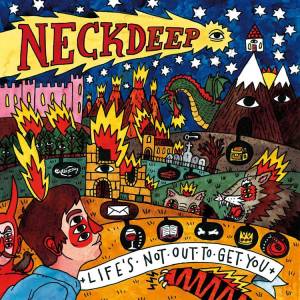
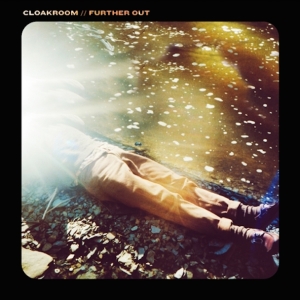
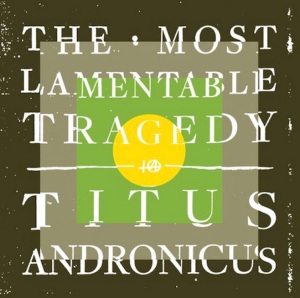
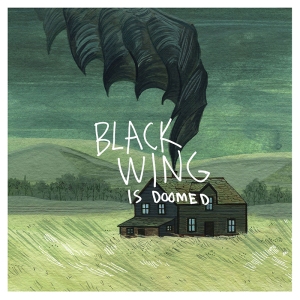
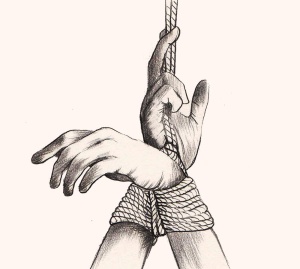
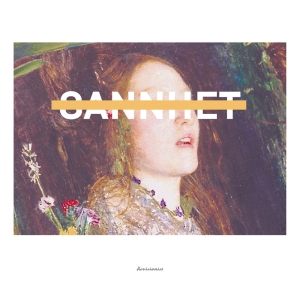

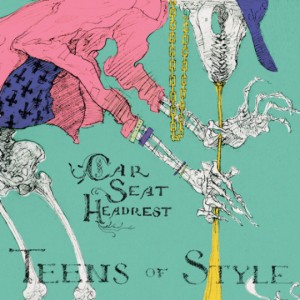
![21002 [Converted]](https://rizkiasasiasasi.files.wordpress.com/2016/01/promoimage.jpg?w=300&h=296)

